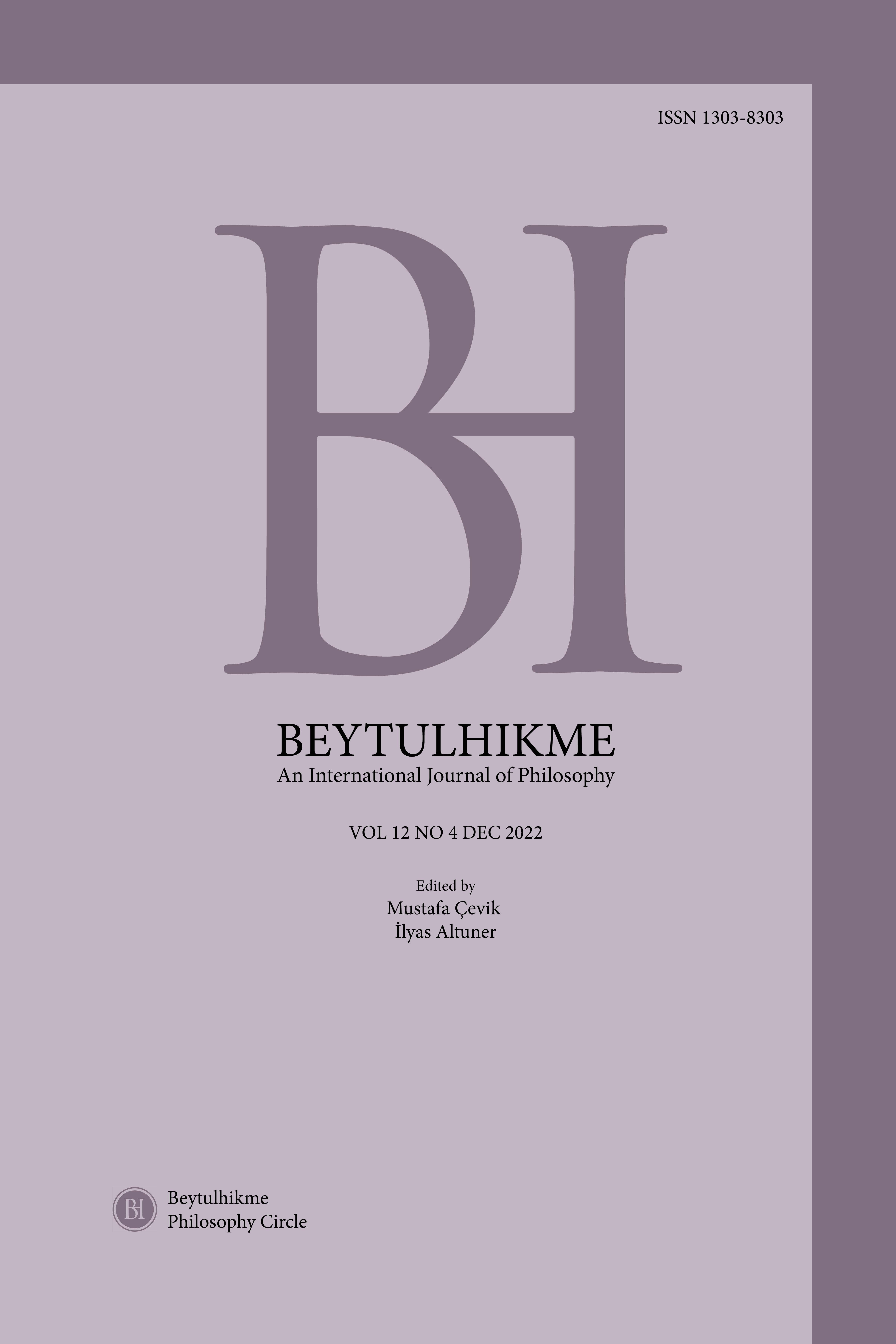Author :
Abstract
Tek dereceden bilinç kuramları (first-order theories of consciousness) ile üst dereceden bilinç kuramları (higher-order theories of consciousness) bilinç çalışmalarını içeren literatürde birbirlerinin rakibi olarak bilinirler ve bilinçli zihin durumlarıyla ilgili sundukları açıklamalarda farklı yaklaşımlar gösterirler. Tek dereceden bilinç kuramları bilinçsizce bilinçli olmanın mümkün olmadığını, üst dereceden kuramlar ise mümkün olduğunu savunur. Bu makaledeki amacım iki kuram arasındaki yaklaşım farklarını ortaya koymak, bu farkların önemli bir ilkesel anlaşmazlıktan mı yoksa sadece sözel bir anlaşmazlıktan mı kaynaklandığını inceleyerek iki kuramın uyumlu olup olmadığını görmek ve bu tartışmanın ışığında bilinçsizce bilinçli olmanın eğer mümkünse ne anlama geldiğinden bahsetmektir.
Keywords
Abstract
First-order theories of consciousness and higher-order theories of consciousness are rivals in the studies of consciousness and provide different explanations concerning the consciousness of a mental state. First-order theories defend that it is not possible to be unconsciously conscious whereas higher-order theories argue that it is possible. In this paper, I discuss these differences to see if there is indeed a deep disagreement or if the disagreement is merely a verbal dispute and thereby see if the two theories can be reconciled. In doing so, I also explain what it means to be unconsciously conscious granted that it is possible.
Keywords
- Armstrong, D. M. (1980). The Nature of Mind and Other Essays. Cornell University
- Byrne, A. (1997). Some Like It HOT: Consciousness and Higher-Order Thoughts. Philosophical Studies, 86(2), 103-129.
- Carruthers, P. (2000). Phenomenal Consciousness: A Naturalistic Theory. Cambridge University Press.
- Carruthers, P. (2005). Consciousness: Essays from a Higher-Order Perspective. Oxford
- Dretske, F. (1993). Conscious Experience. Mind, 102(406), 263-283.
- Dretske, F. (1995). Naturalizing The Mind. MIT Press.
- Dretske, F. (2007). What Change Blindness Teaches About Consciousness. Philo- sophical Perspectives, 21, 215-230.
- Gennaro, R. J. (1996). Consciousness and Self-Consciousness. John Benjamins Publis- hing.
- Gennaro, R. J. (Ed.). (2004). Higher Order Theories of Consciousness: An Anthology. John Benjamins Publishing.
- Gennaro, R. J. (2012). The Consciousness Paradox: Consciousness, Concepts, and Higher- Order Thoughts. MIT Press.
- Kriegel, U. (2003). Consciousness as Intransitive Self-Consciousness: Two Views and an Argument. Canadian Journal of Philosophy, 33, 103-132.
- Levine, J. (2001). Purple Haze: The Puzzle of Conscious Experience. MIT Press.
- Lycan, W. (1987). Consciousness. MIT Press.
- Lycan, W. (1996). Consciousness and Experience. MIT Press.
- Mandik, P. (2009). Beware of the Unicorn: Consciousness as Being Represented and Other Things That Don’t Exist. Journal of Consciousness Studies, 16(1), 5-36.
- Neander, K. (1998). The Division of Phenomenal Labor: A Problem for Represen- tational Theories of Consciousness. Nous, 32(S12), 411-434.
- Rosenthal, D. (2002). Explaining Consciousness. In D. Chalmers (Ed.), Philosophy of Mind: Classical and Contemporary Readings (ss. 406-421). Oxford University
- Rosenthal, D. (2005). Consciousness and Mind. Oxford University Press.
- Rosenthal, D. (2011). Awareness and Identification of Self. In J. L. Liu & J. Perry (Ed.), Consciousness and The Self: New Essays (ss. 22-50). Cambridge University





